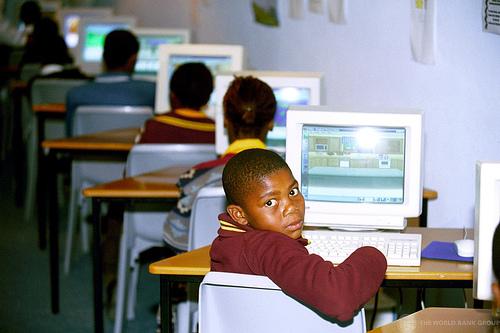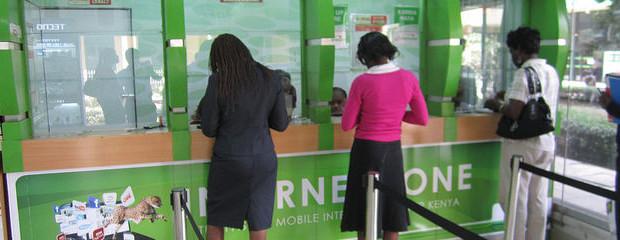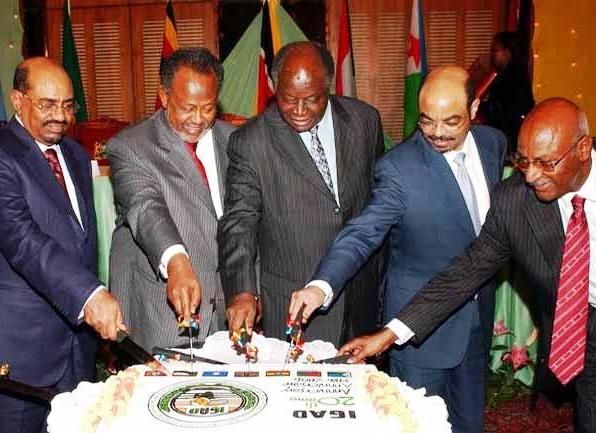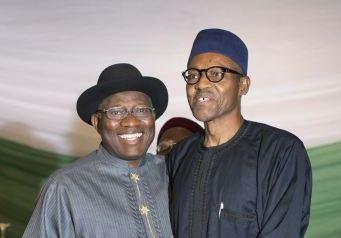Should access to the internet be a human right? – By Doreen Akiyo Yomoah

Internet access was officially declared a right by the UN in 2011, eight years after the World Summit Information Society first met in 2003. Among their goals was to address the global digital divide; to “improve access to information and communication infrastructure and technologies as well as to information and knowledge; build capacity; increase confidence and security in the use of ICTs; create an enabling environment at all levels; develop and widen ICT applications.” Despite this, a decade later, 68% of the world does not have access to internet.
Corruption as an Impediment to Internet Access
Almost all of Africa’s 54 economies are characterized by mismanagement of funds. It’s no secret that even in resource-rich countries like Nigeria, Mozambique, Kenya, and Uganda, while the government rakes in billions of dollars, many are still living in abject poverty. Governments fail to fulfill their obligations to the people. Healthcare, education, adequate shelter, and food are out of reach for many of Africa’s populace.
The institutionalized corruption that impedes technologization covertly impedes the right to internet access and freedom of expression, allowing the government to use rhetoric that promotes human rights while simultaneously blocking them. At the other end of the spectrum, overt internet censorship, such as website and blog censorship in Ethiopia and Uganda’s threatening to block social media sites over protesting high fuel and food prices are justified by vague claims about state security, or the stand-by “It’s not African“ excuse that is often heard when change threatens existing power structures.
In an interview, Paul Kimumwe of Article 19, an NGO focused on freedom of expression, said that internet access is hindered by fears of state leaders: “Many governments in Africa feel threatened that people will have access to information; they will be informed and be able to put governments under pressure to be more democratic.”
Is Internet a Human Right?
While it may seem frivolous to consider the right to internet access a necessity given all of the other problems facing Africa, Jovan Kurbalija argues that “human rights activists view Internet governance from the perspective of freedom of expression, privacy, and other basic human rights.”
The argument that Africa should focus on more “important” issues is problematic for a few reasons. Firstly, changes happen concurrently, which is why states have different ministries devoted to transportation, roads and highways, sanitation, women and children’s affairs, health, and education. Secondly, although there are disproportionate levels of poverty throughout the continent, Africa is not solely characterized by poverty. The working class, the middle class, and the elite are all parts of society, and it’s unrealistic to ask that everyone wait until hospitals are built in every corner of their respective countries before being able to access internet that comes at a reasonable cost and functions at a reasonable speed. Thirdly, internet access itself is an educational tool that can enhance development- children who learn how to use internet at school, for example, have many more opportunities than those who don’t. On a continent where teachers are often on strike, internet access would be an advantage to students in need of information.
Political Expression
Regardless of disagreements on whether or not internet access should be considered a human right, it can be used to realize people’s civil and political rights. The Arab Spring was sparked by internet activism. This year, Malaysia’s election saw civil society bypass traditional media, which is owned by the state, to use social media to gain support for the opposition. Despite the election’s disappointing outcome, for the first time in over 50 years, there was a viable opposition to Malaysia’s Barisan Nasional party.
According to Kurbalija, “A basic set of Internet-related human rights includes privacy; freedom of expression; the right to receive information; various rights protecting cultural, linguistic and minority diversity; and the right to education.” Not only is internet access a right in and of itself, it helps promote freedom of expression and information.
Despite all the impediments, internet activism has begun to take root in Africa. Women’s groups, LGBT activists, and whistleblowers have used the internet to communicate with others, both activists and non-activists alike worldwide.
Freedom of expression, the right to life, and liberty are not “Western” rights, they are human rights. The work of African civil society, such as Ugandan LGBT organization Smug, women’s groups that campaign against FGM, and those who work to put a stop to human trafficking are all indicative of a growing grassroots respect for human rights throughout the continent. Those who stand in the way of internet access impede the realization of a continent where democracy, education, and freedom of expression are valued.
While the future of internet access is unforeseen, Kimumwe is hopeful that the within the next 20 years, internet access and the rights that come with it will be achieved: “Many governments that are feeling threatened right now are not expected to be around in the next 20 years. Uganda, Tanzania, Rwanda, are all experiencing new dynamics. When there is change, there are some benefits that trickle through, so we are hoping for that.”
Doreen Akiyo Yomoah is a freelance writer and blogger.






